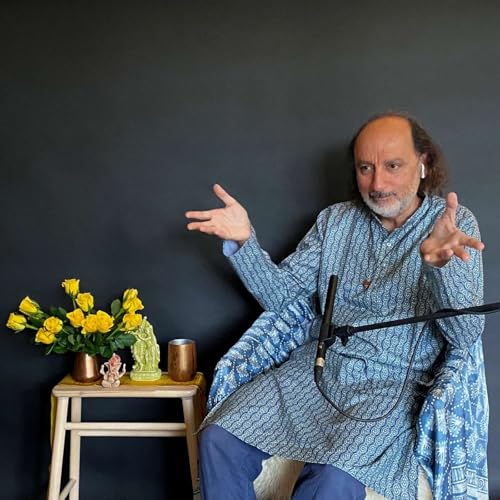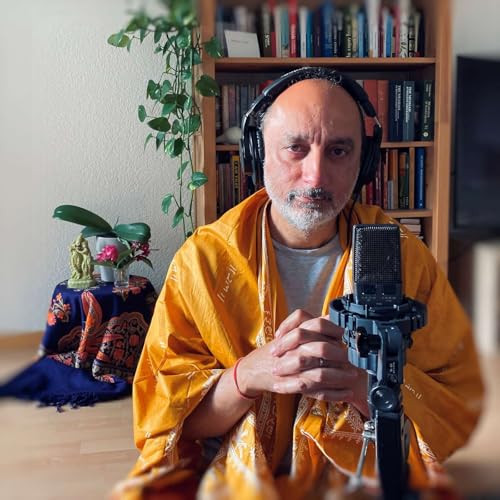A clever, perceptive, inspiring conversation, for those interested in India and its performing arts: for Indian music lovers, for Tabla lovers, for classical music lovers and Bhakti music lovers, Alok Verma delivers a master talk about different aspects to consider in Indian music and how to connect to it with authenticity, respect, love, enjoyment, understanding.
Manish Vyas interviews Alok Verma about key aspects along the path of learning, presenting and developing Indian music. Below we share some of the most significative thoughts expressed by Alok during this talk:
"This musical journey begins but never ends: any step we take is a learning curve"
"My teacher (Guru) had shown so much love towards my playing, and so was my love for the teacher - that's when the Guru Shishya Parampara (Guru discipline tradition) started"
"I have my Indian Tabla classical roots which has been kept intact - and anywhere I play I incorporate those elements into the music: the grooves may change but in the end, the foundation and the authenticity of the material is kept intact"
"I have seen some musicians who took a couple of lessons and perform... I admire their confidence, but having a couple of lessons, these musicians have not even surfaced, have not even touched down the authenticity of what is required to learn from a Guru"
“A Raga has a feel, which is needed to deliver that Raga”
"Whether it's a bhajan, a folk song or a Bollywood song, if you compose something in raga Bhairavi and you have that foundation (of Indian classical music,) it's going to sound absolutely brilliant"
"You have to learn from the person who belongs to the country or place of the tradition"
"The student-teacher relationship as a silent-communication ("silent presence and observation") is a must"
"Kirtan cannot be taught, just like I cannot teach you how to feel sadness, because it's an emotion -- it can only be felt"
"There is a fine line between holding an instrument and really knowing how to play it"
"It is a responsibility to pass on the right knowledge to the next generation; otherwise what I am spreading across is wrong or not part of the real essence of the learning; this would feel like doing some sort of fraud to the next generation"
"I teach traditional music. Transformation comes when the student has achieved a certain standard, but when you're learning, you need to follow the tradition"
“As a Tabla player, my feet are far away from the Tabla, if a slight touch happens, I would bow down to the instrument and I would pay respect to that. Having come from that background, to see someone sitting on the instrument and jumping on it, and then performing and singing Mantras is totally wrong to me – I would never appreciate that.”
“People who want to learn Indian music of any kind, have to find the source of those who are in the right state of that music – otherwise you wouldn’t know what is right and what is wrong. By reaching the right source, then you come to know what the real essence of this music is. Delivering Indian music, one needs to have respect and a discipline; giving justice to what is required”
“The chord system used to play Harmonium by western 'Mantra singers' did not exist in Indian music. So they sit down with 2 chords – how does that make them a singer and harmonium player?”
“If intentions are genuine, the first intention should be to go and learn from the right source"
From Gujarat, disciple of Divyang Vakil Ji, Alok Verma lives in UK since many years. He started the studies of Indian music with his dad as a small child. He's percussionist, Tabla, Dholak and Pakhawaj player, composer, multi-instrumentalist, singer and music teacher at one fot the best schools in London. THANK YOU! @alokvermamusic
 54 mins
54 mins Sep 9 202523 mins
Sep 9 202523 mins 44 mins
44 mins 29 mins
29 mins 20 mins
20 mins 1 hr and 28 mins
1 hr and 28 mins Mar 10 202419 mins
Mar 10 202419 mins Jan 18 202420 mins
Jan 18 202420 mins
